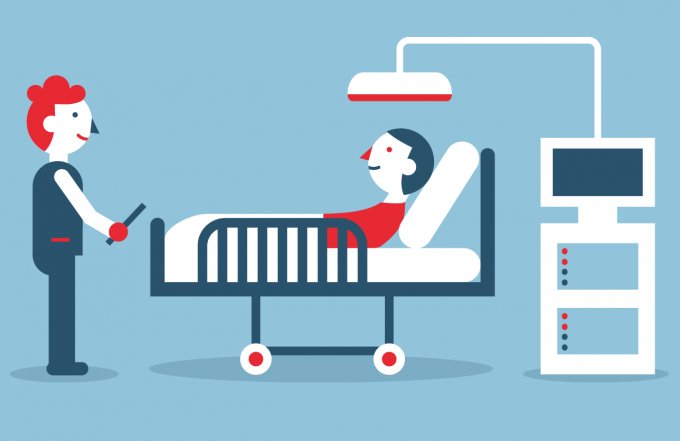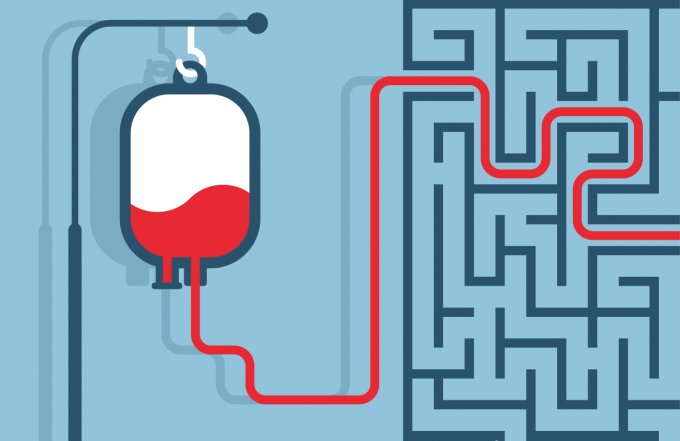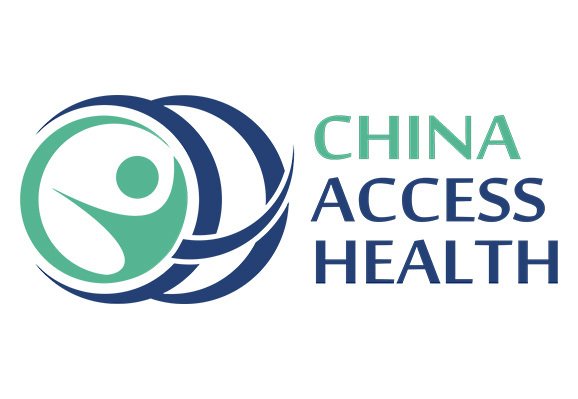You need health insurance. We all do. Bones break, appendixes burst, and scooters crash. Look, you need insurance. It’s just the responsible thing to do. Especially when you’re an expat. Apart from the obvious,
- As a foreigner, you’re more likely to need to go somewhere the doctors speak English, and that means you’re going to probably have to pay for the privilege.
- There are long-term health concerns associated with living in China, and getting a plan now before you need it is way, way easier than trying to get it back home when you do.
But finding the right plan for your specific needs is a complex, confusing mess. Who do you buy from? How much coverage should you get? What should you know before purchasing? For this article, we spoke to Kamil Gusaev, an English-speaking insurance broker at China Access Health, a China-based health insurance broker that’s well known in the Expat community and has over 10 years of experience purchasing the right health insurance for Expats.
This is the in-depth, mammoth, ultimate guide to individual health insurance in China. Check it.
Types Of Health Insurance In China

In-Patient Coverage (住院保障)
In-patient coverage is the most basic and core component of any health care plan, and everyone should have it regardless of age, fitness, and health history. In-patient care is when a doctor formally admits you into a hospital overnight or several hours during the day, typically for immediate, serious, and often life-threatening scenarios like car accidents, viral diseases, poisonings, and other costly conditions.
In-patient coverage plans typically have maximum cost limits and include services like medical evacuation (the helicopter that carries you from that mountain you fell off in Guilin to the nearest good hospital) and medical repatriation (transport to a different hospital if the current hospital cannot treat your condition). Some in-patient plans often cover repatriation of remains (sending your body back home if you die overseas).
Approx. Cost: 5,500rmb (limited coverage) to 20,000rmb (best coverage) per year for a healthy 25-year-old.
Out-Patient Coverage (门诊保障)
Out-patient coverage makes up 85% of all insurance claims and refers to medical care that doesn’t require a hospital admission of more than 12 hours. This ranges from going to the doctor’s office for a common cold to surgery to long-term diseases like diabetes and cancer.
How much coverage you have depends on your plan, and outpatient plans cannot be purchased without in-patient coverage. Payout maximums on plans range from 10,000rmb to ones without limits (but they will still be limited by your core plan — the in-patient plan). Most plans cover medical practitioners, prescription drugs, specialists, diagnostic testing, and vaccinations. Some plans also include eye exams and prescription glasses, chiropractic treatments, herbal medicine, acupuncture, and visits to the psychiatrist, as well as a small limit on emergency outpatient care (see below). What is provided ultimately depends on the specific plan, which you’ll need to get into the fine print for.
Approx. Cost: An additional 80-150% of the in-patient premium.
Additional Options
Wellness Care (体检保障)
Wellness coverage refers to screenings for underlying conditions. Insurers cover up to a certain annual amount, which you can spend at a clinic of your choosing on diagnostic tests. Benefits individuals and insurers by catching problems early.
Approx. Cost: 1500-5500rmb per year.
Maternity Care (生育保障)
Maternity care is expensive and most plans require that it be purchased at least a year before pregnancy for a claim to be filed successfully. It covers any medical costs resulting from pregnancy and childbirth and the welfare of your newborn.
Approx. Cost: 10,000-35,000rmb per year.
Dental Care (牙科保障)
Dental coverage varies widely depending on the insurer. They generally have co-pays, and some include cleanings and preventative care while others don’t. Emergency dental care is often covered in the in-patient coverage.
Approx. Cost: 1,500-13,500rmb per year

Wait, Can’t I Just Get Travel Insurance?
People often use travel insurance as a cheap way to get insured in China. What many people don’t realize is that travel insurance stops working the second you become a resident (i.e. you get a job or become a full-time student). It will still work when you travel to other countries, but not in your place of residency — China.
If you live in China and often travel to other countries, it’s a good idea to have travel insurance. But, according to Kamil Gusaev at China Access Health, travel insurance is inherently designed to send people back home, where travel insurance is no longer obligated to cover them. And in such cases, you’ll want an actual insurance plan.
Isn’t the Health Insurance as part of my local Social Insurance (Sijing) good enough?
Health insurance is one of the five pillars of social insurance ((社会保险) in China. However, even though it’s been required since 2021, in reality, most companies don’t pay social insurance for foreigners in Shanghai. But even if your employer does pay it for you, local insurance has disadvantages:
- 1) You are only limited to treatments in public/government-run hospitals, not even VIP or International Departments like the ones Huashan or Ruijin have;
- 2) In most cases it doesn’t cover expenses 100%, but rather be prepared to spend 10-30% of expenses out of pocket, which is particularly important when you need to face a major inpatient surgery followed by several days of hospitalization;
- 3) For outpatient care in many cases, reimbursement is limited only to the amount that your employer has contributed.
So in short, if you plan on visiting private clinics or VIP departments of local clinics, the health insurance that comes with your social insurance is useless.
How To Get Health Insurance
Option 1: Go Straight To An Insurance Company
You’ll have to deal with them eventually anyway. Your first port of call will probably be their website. Most have nice-looking websites with information that applies worldwide. Others have a confusing network of all-Chinese domains for their local branches, and phone numbers that don’t work.
Whatever the case, don’t rely on the website for anything more than a contact person anyway. Insurance packages are priced according to your beautiful, unique self. You will have to fill in varying degrees of massive health declarations before your get your final quote.

If they have the option, submit a request for a quote on their website, and odds are good a salesperson will get back to you in a day or two at the most by phone call or email. A couple of big insurers in China are:
- Aetna, an American Fortune 100 company, partnered with state-owned China Life — one of the largest providers in the country despite a flood of competitors joining the market after the 90s — and Huatai Insurance.
- Allianz, a German company (now called Allianz Jingdong in China), is one of the largest insurance providers in the world, and reportedly has one of the best claims processes in the business.
- Bupa is a British healthcare provider that partners with Shanghai-based company Alltrust Insurance. They run their own integrated medical center down in Guangzhou, but most Shanghai clinics are in their network.
- Cigna, probably one of the biggest insurers worldwide, is popular with corporate clients. They partner with China Merchant Bank. Their website includes a very good quote calculator, and they run a special medical advice hotline for their clients.
- MSH China is a French insurer popular with high-level executives with families. We hear they have good maternity coverage, too.
- Ping An Health, the biggest health insurance provider in China, also runs the country’s biggest healthcare platform, Good Doctor.
Going directly to the insurance company will give you the most in-depth information about their products, and they can adjust the plans to fit your needs more easily.
Don’t just go to one, though. Get quotes from as many insurers as you can, so you can compare the prices, benefits, and options from each. That can be a lot of work, which is why your second option might be to…

Option 2: Go To A Broker
Brokers can sell you insurance from many different companies, and it won’t cost you anything because they take their fees from the insurance providers. That gives them a wide perspective, and they can do the difficult work of comparing the various packages for you. In the best-case scenarios, they can even help out if there’s a dispute with your insurer. They come in many shapes and sizes, and their quality varies dramatically. We tried two.
- is a China-based health insurance broker run by an expat team, with a focus on helping expats source, purchase, and best use insurance plans in the country. The business has more than 10 years of experience, with clear and deep knowledge of the local market, and will provide a personalized solution to each client.
- Shanghai Sunwising Insurance Broker is a local Chinese fully licensed insurance broker with an English-speaking team and offices in Shanghai and Hong Kong. They are an independent broker, consulting clients on which insurance fits their needs best.
- Pacific Prime is a well-established broker offering plans from over 30 insurers worldwide. Their Hong Kong-based China branch has offices here in Shanghai, and they’re quick to contact you and answer questions in-depth.
The Lingo
A lot of terminology gets thrown around in health insurance. Is it because health insurance is complicated, or is it meant to bamboozle you out of your money? Of course not. Here are some terms you might hear:
Premium (保费)- the price you pay for your insurance, either in monthly, quarterly, semi-annual, or annual installments. Premiums are based on a lot of factors, but primarily your age and gender. The premiums advertised on websites or in brochures are not the final rate: your premium will change based on the medical declaration you make when purchasing the plan, and your premium will rise as you get older, especially around the age of 55.
Deductible (免赔额) – an annual limit of how much you have to pay towards a medical bill before the insurer starts to pay. If you have an annual deductible of 300 dollars, and you get a medical bill of 800 dollars, you have to pay 300 dollars first before your insurance company steps in to pay the remaining 500 dollars. The higher your deductible, the lower your premium.

Copay/Coinsurance (自付比例) – even after you meet your deductible, you might have a copay/coinsurance. It’s usually expressed as a percentage, though sometimes as a fixed rate. The most common one is 80/20, where you pay 20% of the cost, whatever it is, and the insurer pays 80%. Generally, the higher your copay/coinsurance, the lower your premiums.
Out-Of-Pocket Maximum (自付額) – this is the maximum you have to pay per year, in any form, before the insurance will step in to cover 100% of the cost (up to your plan’s annual maximum). That includes your deductible and your coinsurance.
Direct Billing (直付医院) – when the cost of your treatment is handled directly by the hospital and the insurance provider. You don’t have to pay and then apply for reimbursement from your insurer, it just gets done. If you are treated somewhere that doesn’t have a direct billing agreement with your insurer, you might have to provide a guarantee of payment, basically a letter from your insurer saying that they agree to pay for whatever you’ve applied for. Depending on the treatment, this guarantee might be ready in two-five days or within the hour.
High Cost/Expensive Provider (HCP/EP) – (昂贵医院) is a classification used by insurance providers to indicate the tippy-top of the healthcare provider pyramid, or at least the ones that cost the most. In Shanghai, United Family and Parkway are classified as High-Cost Providers by every insurance company we checked. Getting access to these HCP clinics will greatly increase your premiums. Curiously, Jiahui’s new state-of-the-art facility was not an HCP. Wonderful!

Are Pre-Existing Conditions Covered?
Signing up for health insurance involves answering a long list of questions about your health, including drug and alcohol history, BMI info, and most importantly, pre-existing conditions like heart disease, diabetes, and other expensive issues that developed and were discovered before getting on an insurance policy. Insurance companies in China don’t typically cover pre-existing conditions.
Insurers will still cover conditions that exist but were unknown to you. So if your doctor tells you that you’ve had cancer for the past few months, but your health plan only started last month, the new plan will cover treatment costs as long as cancer hadn’t been discovered by another doctor before your plan began and you were unaware of it.
Once you have health insurance, insurers cannot increase your premium due to any new conditions you develop. Even when your contract ends and the plan is renewed, the insurer cannot raise the fee. However, they can raise it due to other factors such as age and yearly cost increases, but these increases are raised equally among all customers.
The safest thing to do, says Creutzburg, is to get on a good insurance plan while you are young. That way, should you develop a condition, you will be covered.
What about when I move back home?
This is really, really important. Make sure that the plan you get is transferable to any country you plan on moving to in the future. If the plan is not transferable, you’ll have to get a new health policy that may not cover any conditions you developed on your current plan.
Eight Things To ASK Before Purchasing Insurance

It’s important to know what you’re paying for when you buy insurance. You want to be as informed as humanly possible. So here are some key things you should find out from your insurer or broker before purchasing.
1. Does the hospital you want to go to take your insurance? If you have a specific hospital or doctor you want to go to, make sure they have an agreement with the insurer you are buying from. In addition, know what hospital you want to be sent to in the case of an emergency. Call your insurance and the hospital to make sure that they recognize each other and offer direct billing.
2. How does direct billing work? Direct billing is where the hospital has a contract with your insurer so that they pay directly for treatments and doctor’s visits. With direct billing, the patient doesn’t have to file a separate claim with the insurance company or open their own wallet to pay and get reimbursed. Different insurers have different hospital networks and different services that they can direct bill for — you should find these out before buying your plan.
3. Does your insurer cover day cases or only overnight stays? Day cases is the term for emergency situations that necessitate a formal hospital admission but not an overnight stay. Some insurers count day cases as in-patient care, and some count it as out-patient care. Find out if an overnight stay is required to be counted under in-patient coverage and if your plan covers emergency outpatient visits.
4. Are the services you want covered? Do you want coverage for vaccinations, chiropractic treatments, therapy, or Traditional Chinese Medicine? Plans are different so don’t assume that all services are covered.
5. Pre-existing conditions: will yours be covered? Can you get a group plan to get coverage? What are the alternatives? Should you leave your current health plan? You don’t want to lose existing coverage when you make a switch.
6. What are the waiting periods? Some types of insurance have waiting periods, where coverage for certain services doesn’t begin until months or years after you first start paying for your plan. These services can include maternity, psychiatry, wellness checkups, dental, and other types of care. Be aware of when your coverage actually starts.
7. Deductibles and Copays: A deductible is an amount you must pay for treatment before your insurer starts paying. A copay is a fee you must pay for each visit for treatment. Some copays and deductibles are different for foreign hospitals. Don’t assume that they are the same, as you might end up paying a 20% copay on expensive treatments.
8. What Is A Treatment Guarantee Letter? A treatment guarantee letter is official approval from your insurer for a treatment. These take two to five days to process for expensive outpatient care or in-patient care where treatment isn’t necessarily immediately. Make sure you get your guarantee letter and that your treatment is covered before you go to the hospital for major treatment.

This article was created in collaboration with:

China Access Health
China-based health insurance brokers with a focus on helping expats to source, purchase and best use the insurance plans in the country. The business has more than 10 years of experience, with clear and deep knowledge of the local market, and will provide a personalised solution to each client.
Visit Profile & Send Inquiry

![[How To]: Get Health Insurance in China](https://www.life-china.com/wp-content/uploads/2022/09/3c63-04c1-4fa6-984a-2b17f28bd4c3.png.680.0.jpg)
![[How To]: Courier Something in Shanghai](https://www.life-china.com/wp-content/uploads/2019/07/1539165755-440x264.jpg)



Recent Comments